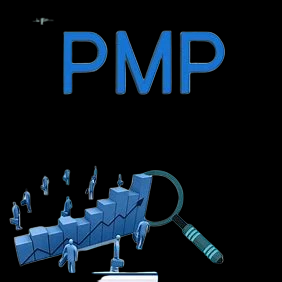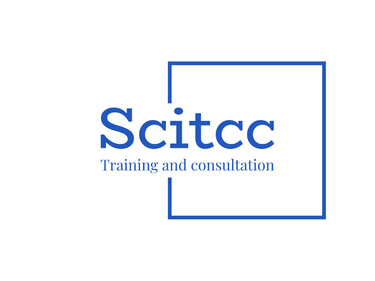
Professional Project Management
$5500.00
Professional Project Management - 5-Day Certification Training Course
Building World-Class Project Management Capabilities Across Saudi Arabia, Oman, and the GCC
As Gulf Cooperation Council (GCC) nations execute transformational mega-projects and strategic initiatives, the demand for professional project managers has never been more critical. This comprehensive 5-day Professional Project Management training course equips project professionals in Saudi Arabia (KSA), Oman, UAE, Kuwait, Bahrain, and Qatar with globally recognized methodologies, practical tools, and leadership skills to deliver projects that exceed expectations in the dynamic Middle Eastern business environment.
Supporting Saudi Vision 2030 initiatives including NEOM, Red Sea Project, Qiddiya, Diriyah Gate, and Oman Vision 2040 projects like Duqm Economic Zone, Oman Rail, and infrastructure developments across the GCC, this program delivers comprehensive project management excellence aligned with PMI (Project Management Institute) standards and regional best practices.
Course Overview: Professional Project Management Excellence
This intensive program covers all 10 PMBOK Knowledge Areas and 5 Process Groups, combining traditional project management, agile methodologies, leadership competencies, and practical application to develop complete project management capabilities. Through interactive workshops, real GCC mega-project case studies, and hands-on planning exercises, participants will master end-to-end project management while earning 40 PDUs (Professional Development Units) toward PMP certification.
Target Audience: Project managers, assistant project managers, project coordinators, team leaders, engineers, technical managers, program managers, PMO staff, and professionals aspiring to project management roles across all industries in Saudi Arabia, Oman, and GCC countries.
Training Venues: Riyadh, Jeddah, Dammam, Al Khobar, Yanbu, Tabuk, Muscat, Salalah, Sohar, Dubai, Abu Dhabi, Doha, Manama, and Kuwait City. Virtual and blended learning options available.
Day 1: Project Management Framework and Initiation Excellence
Morning Session: Professional Project Management Foundations
Project Management Defined: Projects vs. operations, temporary endeavors, and unique deliverables
PMBOK Guide 7th Edition Overview: Principles-based approach, 12 project management principles, 8 performance domains
Project Success Factors: Meeting scope, schedule, cost, quality objectives while satisfying stakeholders
Triple Constraint Evolution: Expanding to include quality, risk, resources, and stakeholder satisfaction
Organizational Influences: Functional, matrix, projectized structures in Saudi, Omani, and GCC organizations
Project Life Cycles: Predictive, adaptive, iterative, incremental, and hybrid approaches
PMO Functions: Supportive, controlling, directive PMOs and their roles in Gulf enterprises
Professional Responsibility: Ethics, integrity, and PMP Code of Professional Conduct
Afternoon Session: Project Initiation and Integration Management
Project Selection Methods: Benefit-cost analysis, NPV, IRR, payback period for GCC capital projects
Business Case Development: Justifying projects aligned with Vision 2030/2040 strategic objectives
Project Charter Creation: Authorizing projects with clear authority, objectives, and high-level requirements
Stakeholder Identification: Mapping internal and external stakeholders in Middle Eastern contexts
Stakeholder Analysis: Power-interest grid, influence-impact matrix, engagement assessment
Assumptions and Constraints: Documenting project limitations and underlying premises
Integration Management: Coordinating all project elements for unified delivery
Project Management Plan Development: Creating comprehensive roadmaps for project execution
Workshop Activity: Participants develop detailed project charters for real organizational initiatives, defining problem statements, objectives, success criteria, stakeholders, and high-level scope.
Case Study Analysis: Examining NEOM gigaproject initiation, Saudi Aramco’s project governance, Oman airport expansion, and GCC infrastructure project startups.
Day 2: Scope, Schedule, and Time Management Mastery
Morning Session: Project Scope Management
Scope Management Planning: Establishing how scope will be defined, validated, and controlled
Requirements Collection: Interviews, focus groups, surveys, workshops for gathering stakeholder needs
Requirements Documentation: Creating detailed specifications for Saudi, Omani, and GCC projects
Scope Definition: Developing comprehensive project scope statements
Work Breakdown Structure (WBS): Hierarchical decomposition of deliverables using 100% rule
WBS Dictionary: Detailed descriptions of WBS components with acceptance criteria
Scope Baseline: Approved scope statement, WBS, and WBS dictionary
Scope Validation and Control: Formal acceptance processes and managing scope changes
Afternoon Session: Project Schedule Management
Schedule Management Planning: Determining scheduling methodology and tools
Activity Definition: Identifying specific actions required to produce deliverables
Activity Sequencing: Precedence diagramming method (PDM), dependencies (FS, SS, FF, SF)
Activity Duration Estimating: Analogous, parametric, three-point estimates, and expert judgment
Schedule Development: Critical path method (CPM), critical chain, resource optimization
Critical Path Analysis: Identifying longest path and schedule flexibility (float/slack)
Schedule Compression: Fast-tracking and crashing techniques for aggressive GCC timelines
Schedule Control: Managing changes and maintaining baseline integrity
Hands-On Exercise: Teams create complete WBS structures for complex projects, develop network diagrams, calculate critical paths, and build project schedules using Microsoft Project or Primavera P6.
GCC Construction Focus: Addressing scheduling challenges specific to Saudi and Gulf mega-construction projects.
Day 3: Cost, Quality, and Resource Management
Morning Session: Project Cost Management
Cost Management Planning: Establishing estimation, budgeting, and control approaches
Cost Estimating Techniques: Analogous, parametric, bottom-up, three-point estimates
Cost Aggregation: Building budgets with contingency and management reserves
Cost Baseline Development: Time-phased budget for performance measurement
Funding Requirements: Cash flow planning aligned with GCC payment practices and milestones
Earned Value Management (EVM): Integrating scope, schedule, and cost performance
EVM Calculations: PV, EV, AC, CV, SV, CPI, SPI, EAC, ETC, TCPI, VAC
Cost Forecasting: Predicting final costs based on current performance trends
Cost Control: Managing budget changes and maintaining financial discipline
Afternoon Session: Quality and Resource Management
Quality Management Planning: Defining standards, metrics, and acceptance criteria
Quality Standards: ISO 9001, Six Sigma, Total Quality Management in GCC contexts
Quality Assurance: Process audits, continuous improvement, and prevention over inspection
Quality Control Tools: Control charts, Pareto diagrams, cause-and-effect diagrams, histograms
Resource Management Planning: Identifying team, physical, and equipment resources
Team Acquisition: Recruiting talent in competitive Saudi, Omani, and Gulf markets
Team Development: Forming, storming, norming, performing, adjourning stages
Motivation Theories: Maslow, Herzberg, McGregor applied to GCC workforce
Conflict Management: Confronting, collaborating, compromising, smoothing, forcing, withdrawing
Cost Workshop: Participants develop comprehensive project budgets, perform EVM calculations, analyze variances, and forecast completion costs using real project data.
Quality Planning Exercise: Creating quality management plans with inspection points, metrics, and control processes for Gulf industry projects.
Day 4: Risk, Procurement, and Communications Management
Morning Session: Project Risk Management
Risk Management Planning: Establishing risk strategy, roles, and methodologies
Risk Identification Techniques: Brainstorming, Delphi, SWOT analysis, checklists, interviews
Risk Register Development: Documenting identified risks with descriptions and categories
Qualitative Risk Analysis: Probability and impact assessment using risk matrices
Quantitative Risk Analysis: Expected monetary value (EMV), Monte Carlo simulation, decision trees
Risk Response Planning: Avoid, transfer, mitigate, accept (threats); exploit, share, enhance, accept (opportunities)
Risk Monitoring and Control: Tracking triggers, implementing responses, identifying new risks
GCC-Specific Risks: Political, economic, cultural, regulatory factors in Middle Eastern projects
Afternoon Session: Procurement and Communications Management
Procurement Planning: Make-or-buy decisions and procurement strategies for GCC markets
Contract Types: Fixed-price (FFP, FPIF), cost-reimbursable (CPFF, CPIF), time-and-materials
Procurement Processes: Tendering, bidding, RFP, RFQ aligned with Saudi, Omani regulations
Vendor Selection: Weighted scoring, independent estimates, screening systems
Contract Administration: Performance monitoring, payments, claims management
Communications Planning: Stakeholder information needs, formats, frequency, distribution methods
Communication Methods: Interactive, push, pull communication in hierarchical GCC organizations
Communication Channels Formula: n(n-1)/2 for calculating complexity
Effective Communication: Active listening, feedback, cultural considerations in Arab business contexts
Risk Workshop: Teams develop comprehensive risk registers with identification, qualitative/quantitative analysis, response strategies, and monitoring plans for complex Saudi and Gulf projects.
Communication Plan Development: Creating stakeholder communication matrices addressing diverse GCC audiences.
Day 5: Stakeholder Management, Agile Integration, and Project Closure
Morning Session: Stakeholder and Agile Project Management
Stakeholder Management: Identifying, analyzing, and engaging stakeholders throughout project lifecycle
Stakeholder Engagement Strategies: Unaware, resistant, neutral, supportive, leading positions
Managing Expectations: Balancing competing interests in Saudi, Omani, and Gulf projects
Agile Fundamentals: Iterative, incremental delivery for rapid value realization
Scrum Framework: Sprints, daily standups, sprint reviews, retrospectives
Kanban Principles: Visualizing work, limiting WIP, managing flow
Hybrid Approaches: Combining predictive and adaptive methods for GCC projects
Agile Mindset: Embracing change, collaboration, and continuous improvement
Afternoon Session: Monitoring, Controlling, and Closing Projects
Project Monitoring and Controlling: Tracking, reviewing, and reporting project performance
Integrated Change Control: Managing scope, schedule, cost changes systematically
Performance Reporting: Status reports, dashboards, variance analysis for GCC executives
Issue Management: Identifying, logging, resolving problems impacting project success
Lessons Learned: Capturing knowledge for organizational improvement
Project Closure Processes: Administrative, contractual, and financial closure activities
Final Deliverable Acceptance: Verification, validation, formal sign-off procedures
Post-Project Review: Evaluating success against objectives and benefits realization
Continuous Improvement: Building organizational project management maturity
Final Integration: Capstone Simulation and Certification
Comprehensive Project Simulation: Managing realistic GCC mega-project through all phases
Crisis Scenarios: Handling scope changes, resource conflicts, stakeholder issues, budget overruns
Decision-Making Under Pressure: Making trade-offs between competing project constraints
Integrated Project Plan Presentations: Teams present complete project management plans
Best Practices for GCC Projects: Regional insights for construction, oil & gas, IT, government sectors
PMP Certification Pathway: Exam eligibility, application process, study strategies
Career Development: Leveraging project management expertise in Saudi, Omani, and Gulf markets
Professional Network Building: Connecting with project managers across GCC industries
Capstone Deliverable: Complete integrated project management plan including charter, WBS, schedule, budget, risk register, quality plan, communication plan, and stakeholder register ready for organizational implementation.
Certificate Award: Professional Project Management Certificate with 40 PDUs toward PMP certification.
Key Learning Outcomes
Upon completing this Professional Project Management training in Saudi Arabia, Oman, and the GCC, participants will be able to:
✓ Apply PMBOK 7th Edition principles and performance domains to real projects
✓ Initiate projects with comprehensive charters and stakeholder engagement
✓ Plan thoroughly covering scope, schedule, cost, quality, resources, communications, risk, procurement
✓ Execute effectively using appropriate predictive, agile, or hybrid methodologies
✓ Monitor and control project performance using EVM and variance analysis
✓ Close projects professionally with proper handover and lessons learned
✓ Lead diverse teams in multicultural GCC environments
✓ Manage stakeholders across hierarchical Middle Eastern organizations
✓ Earn 40 PDUs toward PMP certification eligibility and maintenance
Program Advantages
✓ PMI-Aligned Content: Based on PMBOK Guide 7th Edition standards
✓ GCC-Contextualized: Case studies from Saudi Vision 2030, Oman 2040, and Gulf mega-projects
✓ Hands-On Practice: 50% practical exercises, simulations, and project planning
✓ PMP Preparation: Foundation for PMP certification exam success
✓ Expert Instructors: PMP-certified trainers with extensive Middle East project experience
✓ Comprehensive Toolkit: Templates, checklists, and tools for immediate organizational use
✓ Software Training: Microsoft Project and/or Primavera P6 practice included
✓ Career Enhancement: Globally recognized credential for professional advancement
Investment in Project Management Mastery
Duration: 5 days (40 contact hours / 40 PDUs)
Format: Interactive training with lectures, workshops, case studies, simulations
Languages: English and Arabic with bilingual course materials
Certification: Professional Project Management Certificate (40 PDUs)
Materials: Comprehensive manual, digital toolkit, project templates, PMBOK Guide references
Software: MS Project or Primavera P6 exercises and practice files
Group Rates: Discounts for teams of 3+ from same organization
Post-Training: 60-day email consultation for project planning support
Master professional project management and accelerate your career. Register today for the leading project management training in Saudi Arabia, Oman, and the GCC region.


